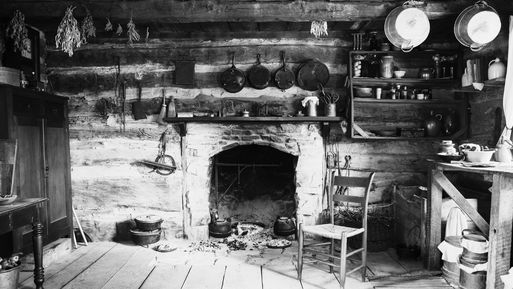|
Until the reek of scorched flesh filled the air, as if it had been boiled up from the dusty road below, the trek to the old woman's house reminded Davis of the time when he was an inky-haired nine-year-old, and his father had left him 22 miles from home. After the sand had torn up his cheap boots and blistered his feet, his stepmother made him clean up his vomit inside the front door with his shirt before he could have some water. His hair was now the color of an unwashed chalkboard. He had a horse, a mule, and cargo: the Bavarian and his sister. The pair were elderly, easily mistaken for a couple, and bound with rope. Davis didn’t have a plan. “Don’t be fooled by their sweet air of innocence,” the old woman had said to him in Glenrio two weeks past. She had come to him in the tavern, like they all did, promising bounty. “They’re killers,” she had said. “Or, at least, they think they are.” She was unlike his usual clientele—bank managers, scorned lovers, crooked sheriffs—an elderly woman with perfectly white hair, perfectly round teeth, a twinkle in her eye, and a sweetness he couldn’t resist. “It is impossibility,” the Bavarian had said after Davis pinned his arms behind his back. He found the two in an apartment above the bank in San Albino. “But what other is to explain?” his sister said. “Please,” she begged Davis, her wrinkled hands working in the folds of her dress. Sweat matted her gray hair to her forehead. “You must to believe. She is evil old, old woman.” Davis cinched their knots and positioned them on the mule. They were frail and frightened. And insistent that the sweet old woman had tried to kill them once upon a time. He spat into the sand now and adjusted the wide brim of his hat against the sun. He wagered they were just three miles out from her house. The stench was like the crust of coffee at the bottom of a kettle, cast upon a sunbaked carcass. It filled his nostrils like rain in a thirsty creek bed. When the house shimmered into view, he dabbed his eyes with his bandana. The Bavarian and his sister huddled together on the mule. At the final knoll before a gray yard opened like a dead flower, his horse spilled him to the ground and took off in the direction they had come. The mule walked a small, confused circle. Davis looked long at its cargo, whose grim faces seemed to carry more than the present discomfort. He recalled when he was eleven, and his dad showed him how to break a horse after a mustang wandered near their house one morning. That was the first time Davis had fired a gun, too, after his stepmother had come outside with a pot and a lid and banged while the horse jerked in every direction, eventually taking him down a sharp decline to the gulley below, breaking her rear left leg. Davis let the Bavarian and his sister stay with the mule while he walked to the front door, his bandana tied tight over his nose. He had cut their ties. Tendrils of a plan were taking shape, and he thought he could still get his payment. He stood for a long time with the thumb of his right hand hooked in a belt loop and its three remaining fingers teasing the handle of his revolver, and then the door swung into darkness. “Where are they?” a voice called. It was the same voice that had said to him in the tavern, “They’ll try to tell you I wanted to eat them. That I lured them into a house made of candy. If you believe a story for little kiddies like that, then maybe you’re not the one for this job.” Davis felt a pair of hands press on his lower back; his boots clucked on the hard wood of the living room as he staggered inside. He heard a suck of air just before the heavy thunk of the front door closing. The old woman stood in the doorway to the kitchen, from where intense heat flowed that could make the desert summer feel refreshing. She was not the sweet old woman with perfectly round teeth and perfectly white hair who had cornered him in the tavern. She had few teeth. Her hair was blackened and patchy. Her skin, too. Her dress hung on what remained of her body in scorched tatters. Davis could see her left cheekbone, her right clavicle, half of her ribcage, and all the bones in her right hand, which she held stiffly near her mouth as if stifling laughter. He spun to find that the front door did not have a knob on the inside. That must have been the joke she had been keeping to herself. He emptied his revolver’s chambers into the door, and sunlight rayed into the room. “Please forgive,” the Bavarian said through the holes. The heat from the kitchen pressed on Davis’s back like a freshly hewn hide. He watched the two walk across the gray yard and mount the mule. He breathed deeply from streams of desert air, then turned to the voice saying, “You were warned, weren’t you?” He felt the useless weight of his gun in his hand and let it clank on the floor. He wondered what was in the kitchen behind the charred and rotting old woman and thought of how his father forbade him to ever go into his stepmother’s kitchen. Naturally, the kitchen became to his curiosity a mirage to a parched throat, and one day when he was six, after being caught trying to quench that particular thirst, his stepmother helped separate his pinky finger from his right hand. He used that hand to wipe sweat from his brow. “I sure was,” he said.  Jeremy Wenisch is a software tester living in Princeton, West Virginia, with his wife and their books. He writes fiction darkly inspired by folklore, including stories appearing in Whistling Shade, Ink Stains Vol. 14, and Bending Genres. https://jeremywenisch.com/ Instagram/Twitter: @jereminate Comments are closed.
|
Archives
June 2024
Categories
All
|

 RSS Feed
RSS Feed